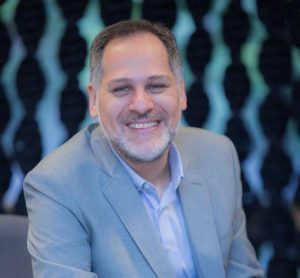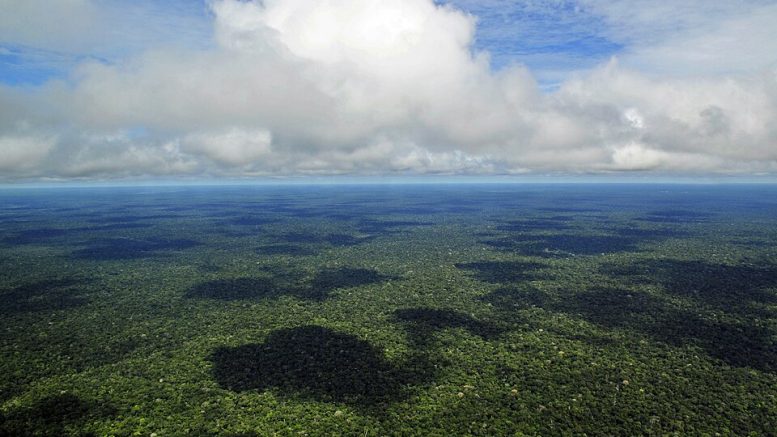“Practices such as integrated systems, low-carbon agriculture and conservation are already underway in the field…”
Eduardo Bastos is CEO of Instituto Equilíbrio, an agricultural engineer graduated from ESALQ/USP, with an MBA from Fundação Dom Cabral and Fundação Getúlio Vargas.
Bastos is executive director of the Agribusiness Studies Institute at the Brazilian Agribusiness Association; president of the AgroCarbono Chamber at Ministry of Agriculture; and a member of the Interministerial Committee for the National Plan for the Conversion of Degraded Pastures.

Eduardo Bastos, CEO of Instituto Equilíbrio
AgriBrasilis – What is Brazil’s role in relation to food, climate and energy security?
Eduardo Bastos – Brazil occupies a unique strategic position: it is one of the few countries with the real capacity to simultaneously lead the food, climate and energy agendas. We produce food on a global scale, efficiently and with room to expand without having to open up new areas. On the climate agenda, we are leaders in regenerative agriculture practices, integrated systems and policies such as the ABC+ Plan. And in the energy field, we have one of the cleanest matrices in the world, with an emphasis on bioenergy and renewable sources.
These agendas are found in the countryside. Agriculture is where food production, land use and energy intersect. If we promote a balance between productivity and preservation, with stable public policies, science and innovation, Brazil can become a global benchmark in integrated sustainable development solutions.
AgriBrasilis – Why COP30 is important for agriculture?
Eduardo Bastos – COP30 will be a global showcase—and a golden opportunity to show that Brazilian agriculture is not part of the problem, but part of the solution. Practices such as integrated systems, low-carbon agriculture and conservation are already underway in the field. COP can reposition the sector, attract investment and consolidate Brazil as a climate leader in land use. But for that to happen, agriculture needs to be at the table with data, proposals, financing and leadership.
AgriBrasilis – What are the main ESG plans in agriculture and how important is pasture conversion?
Eduardo Bastos – Agriculture has been evolving in ESG with a focus on traceability, efficient use of resources and best practices. The ABC+ Plan is one of the pillars of this evolution. The conversion of degraded pastures is one of the most effective ways to generate income, increase productivity and avoid emissions without having to open up new areas. With more than 90 million hectares of underutilized land, Brazil has the chance to transform environmental liabilities into economic assets—and thereby consolidate its sustainable leadership.
AgriBrasilis – “There can be no climate transition without financing.” Where does green credit stand in Brazil?
Eduardo Bastos – Green financing is maturing in Brazil. Initiatives such as the National Program for the Conversion of Degraded Pastures have already mobilized US$ 30 billion in credit, but still represent only a fraction of the scale needed.
In addition to traditional rural credit, new instruments are beginning to emerge—such as equity and barter agreements—with foreign investors interested in long-term sustainable projects. This is positive, but it requires a more robust structure: clear regulation, access for small farmers and legal certainty.
The global appetite for sustainable assets is real. Brazil has the land, the sun, the science and the people ready to innovate. If we organize the right instruments, we can be the largest recipient of green credit in the world—not out of charity, but out of strategic vision.
AgriBrasilis – How to measure the results of climate transition in agriculture?
Eduardo Bastos – Measurement is essential. Without measurement, there is no way to prove impact, improve practices, or generate value. Brazil urgently needs a tropical MRV—a Monitoring, Reporting and Verification system adapted to our agricultural reality: diverse soils, multiple crops and crop-livestock-forest integration.
This system should include data on avoided emissions, soil carbon, productivity, biodiversity and resource use efficiency. We already have promising initiatives such as the ABC+ Plan and advances in REDD+, but we lack scale and integration in agriculture.
Tropical MRV is the way to build trust, attract investment and turn good practices into a competitive advantage. It is time to consolidate this with protocol, technology and training.
AgriBrasilis – Where does Brazil need to make progress to turn climate goals into concrete results?
Eduardo Bastos – We need to turn words into action. This requires simultaneous progress on three key fronts: governance, incentives and capacity building.
Governance means having clear, data-driven national goals and alignment between the federal, state and municipal levels. It also requires coordination with the private sector and regulatory consistency. Incentives should include mechanisms such as green financing, rural climate insurance and carbon markets—instruments that make the transition not only necessary but advantageous for farmers. Finally, training is what ensures that knowledge reaches the front line: technicians, farmers, cooperatives and local managers prepared to apply, monitor and scale up good practices.
Brazil already has a solid foundation: recognized science, available technologies, efficient practices. What is lacking is coordination, scale and speed to transform this into concrete and measurable results.
It is precisely in this context that Instituto Equilíbrio operates. Our role is to build bridges between the productive sector, science and public policy makers, promoting technical dialogue, evidence production and the development of viable solutions for the country. We believe that Brazil can—and should—lead the climate and development agenda based on data, technical neutrality and institutional responsibility.
Our commitment is to position Brazilian agribusiness as a protagonist in the green transition, offering strategic intelligence for the formulation of innovative public policies and the implementation of applied climate solutions. It is not enough to have ambitious goals—you have to deliver on them. And Instituto Equilíbrio exists to help Brazil turn potential into reality.

